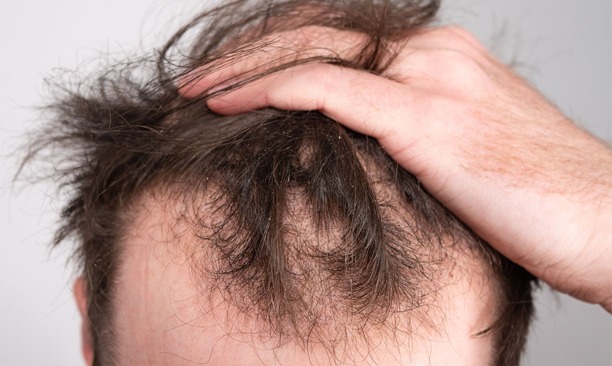It’s quite normal to lose up to 100 hairs per day. If you’re losing a significant amount of hair on a daily basis, you may be suffering from male pattern baldness, also known as androgenic alopecia. Androgenic alopecia, also known as male pattern hair loss, is the most common cause of hair loss. While there are many causes of hair loss, some can be controlled or reduced with at-home regimens. Doctor-prescribed topical and oral medications may also be beneficial. In this blog, we will discuss how we can choose the best solution for hair loss.
How your Doctor will choose the Best Hair Loss Solution for you?
Your doctor will most likely perform a physical examination and ask about your diet, hair care routine, and medical and family history before making a diagnosis. You may also need to undergo either of the following tests:
- Blood test.
- Pull test.
- Scalp biopsy.
- Light microscopy.
Treatment
Some types of hair loss can be completely treated. You might be able to prevent or slow down your hair loss. In some cases, such as patchy hair loss (alopecia areata), hair may regrow without treatment within a year. Both medication and surgery can be used to treat hair loss.
Medication
If your hair loss is the result of an underlying disease, you will need to be treated for it. If you are experiencing hair loss as a result of a medication, your doctor may advise you to discontinue use for a few months. Pattern baldness can be treated with some medications. The most common choices are:
- Minoxidil (Rogaine).
- Finasteride (Propecia).
- Other medications.
Hair Transplant Surgery
Hair transplantation, also known as restoration surgery, can assist you in making the most of your remaining hair. A dermatologist or cosmetic surgeon removes hair from a hairy area of the head and transplants it to a bald spot during a hair transplant procedure. Each hair patch contains one to several hairs (micrografts and mini grafts). Sometimes a larger strip of skin with numerous hair clusters is taken. This procedure does not necessitate hospitalization, but it is painful, so you will be given sedation to alleviate any discomfort. Bleeding, bruising, swelling, and infection are all potential risks. To get the results you want, you might need more than one procedure.
Laser Therapy
The FDA has approved a low-level laser device as a treatment for hereditary hair loss in both men and women. According to a few small studies, it improves hair density. More research is required to show long-term effects.
Preparing for your Appointment
Your family doctor is likely to be the first to hear about your concerns. He or she may refer you to a dermatologist who specializes in skin care (dermatologist).
What you can do?
Here are some general questions to ask your doctor about hair loss include:
- reason for hair loss.
- Are there any other possibilities?
- What types of tests do I require?
- Will my hair grow back or is it permanent? How much time will it take? Will the texture change when it grows back?
- What is the most effective treatment?
- Should I alter my diet or hair care regimen?
- Are there any guidelines I must follow?
- Should I consult a specialist? How much will that cost, and will my insurance cover it?
- Is there a generic version of the medication you’re giving me?
- Do you have any brochures or other printed materials I could take with me?
- Can you recommend any websites?
What to Expect from your Doctor?
Your doctor will ask you some questions. Being prepared to respond to them may allow you to set aside time to go over any points you want to spend more time on. Your doctor may ask you about:
- When did you notice your hair loss first?
- Is your hair loss consistent or sporadic?
- Have you noticed slow hair growth, breakage, or shedding?
- Is your hair loss patchy or uniform?
- Have you ever had a problem like this before?
- Does anyone in your immediate family suffer from hair loss?
- Do you take any medication Regularly?
- What, if anything, appears to help your hair loss?
- What, if anything, appears to be exacerbating your hair loss?
